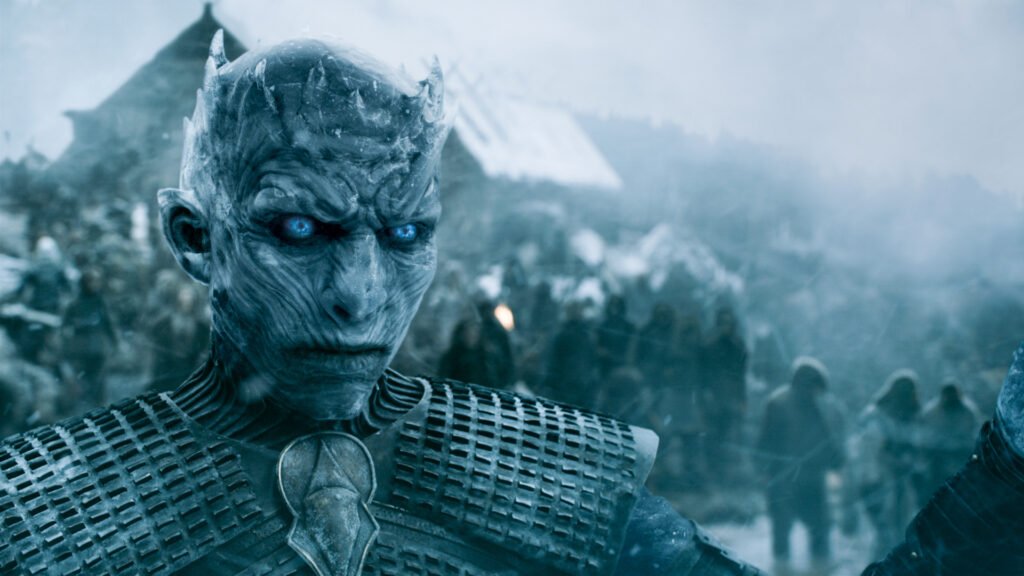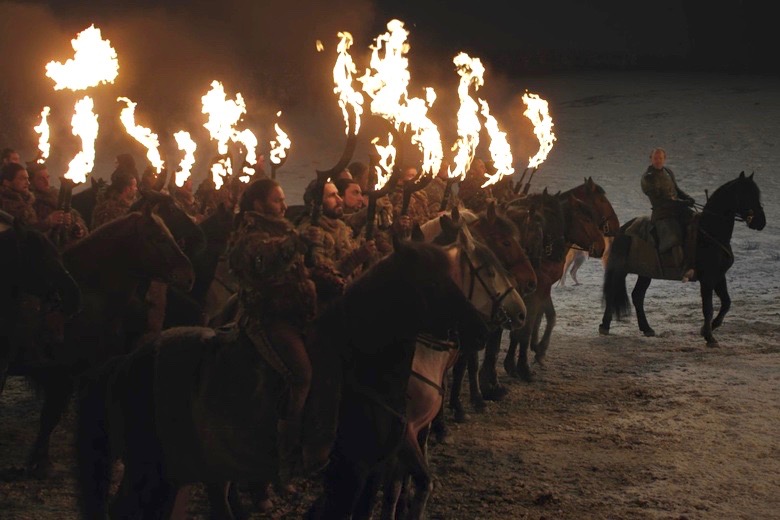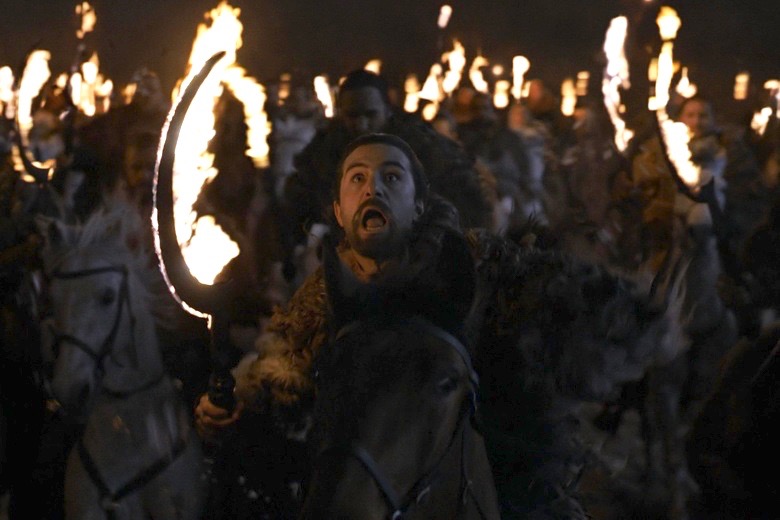Meeting Death in Thrones and Elsewhere

I know that many of you are not Game of Thrones fans. While I am writing about the show, it is not from a fan’s perspective (though I am one). So, know that you won’t be left in the dark by what follows.

I’m finding myself profoundly affected by the events of the recent broadcast third episode of this eighth and final season of Game of Thrones. And by one moment in particular, early in the program.
The Dothraki
The Dothraki are a nomadic tribal people. They are fierce warriors and superb horsemen. And “men” is correct in that statement, though the women are fierce in other ways. Throughout the eight seasons, we have seen them be brutal with each other, brutal with captives. They are not generally nice neighbors. And we have seen them cut through the premier army of the day like a hot knife through butter. These are folks you want as allies, not as foes.
The Fatal Dothraki Charge
In the most recent episode, the Dothraki lead the charge—literally—against the army of the Dead. In the night, we see the Dothraki massed for attack: thousands of them, their curved scimitar-like weapons all aflame by sorcery. With characteristically savage war cries, they surge off into the dark, riding out to meet a foe as they have so many times before. From the vantage point of a nearby cliff, we see the solid wave of lighted blades, moving steadily across the dark plain.

Perspective
Then the director, Miguel Sapochnik, does something we understand well. Rather than keeping us in this long shot of thousands, the camera focuses on one single Dothraki horseman, a leader of the charge. We see him galloping forward, his face in a familiar war mask— a grimace of determination. Then, at the last instant, as he finally meets his foe, his expression goes from that determined ferocity to surprise and dismay as the wave of the Dead sweeps above and over him, his mount, and dozens of his tribesman around him.

Again, we see the fray from the cliff and see the vanguard of light dented, pushed back. Then from the rear, we see the points of light that are the lighted swords bobbing in the distance. We hear the war cries. We see the lights diminish in number. And then, barely a minute after the first encounter, the lights of Dothraki swords go out altogether. Silence. After a few seconds, a single horse, terrified, runs toward us, followed by a handful of Dothraki horsemen, on foot, running for the rear.
The significance of the speed and totality of this defeat is not lost on the remaining troops. They know what the Dothraki can do. And now, in a moment, the Dothraki are gone.
How All This Matters
The face of that one rider comes back to me now, as it has late at night and throughout my day. I think about his encountering Death as a shocking and immediate presence. Recently, my first childhood friend, two years my junior, died after a long illness. More recently, my next-door neighbor, just eight years my senior, suffered a major stroke and died within twenty-four hours. Death is no longer the abstraction it once was.

Today as I compose this, I feel the warm sun on my shoulders, the breeze in my hair. I look up at the oak tree. Its new leaves are just emerging, a lovely pale green. I grew it from an acorn taken thirty years ago from my backyard in Massachusetts. Now a thirty-foot tree, it is nevertheless still an infant. With luck, its lifespan will triple my own. Needless to say, I will not be around to see it mature.
All these reminders of mortality gathering—I remember my own father, confiding in me one dark night on Cape Cod, nearly forty years ago. “Since turning seventy, I have been very aware of my mortality.” Then it was something I heard but could not feel as I feel it today, a week since turning seventy myself.
What Kind of Astonishment?
I suppose this is a gift. We hear that we should treat death as an advisor. That we should live each day as if it were our last. I would prefer, however, the message of a poem my wife recently used in her yoga class, one that suggested we treat each day as our first. As Linda Pastan’s poem, “Imaginary Conversation” says, “each day. . . all raw astonishment. Eve rubbing/ her eyes awake on that first morning, /the sun coming up/like an ingénue in the east.”
I would like my astonishment to be more like that: given to each day I live, rather than that of the Dothraki warrior. I will try. I will feel the sun and the wind. I will enjoy the new leaves floating on the branches that reach out toward me, offering me their astonishment at being born.
